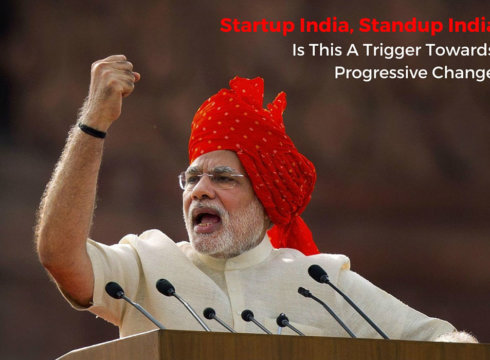Inc42 Daily Brief
Stay Ahead With Daily News & Analysis on India’s Tech & Startup Economy
In a recent move, the Indian Government has further enlarged the startup definition under the purview of ‘Startup India, Standup India’ initiative announced in January 2016. From now on, the overall age limit of startups has been raised from five years to seven and has been further extended to 10 years for biotech startups.
In March 2017, The Department of Industrial Policy & Promotion (DIPP) had invited feedback and suggestions from various industries in India to alter the definition of startups. The secretary highlighted that the definition of enterprises vary as per the sector, and one definition cannot accommodate all the ventures.
Also, despite a year since its launch, no significant progress has been seen under to initiative due to initial strict norms and regulations. To date, DIPP has been able to recognise only 798 applicants as startups and only 10 of those have availed tax benefits.
Initially, only ‘innovation’ was proposed as the base of any entity being considered a startup. As per the earlier stated definition of startups by DIPP, an entity was to be identified as a startup:
- Up to five years from the date of its incorporation/registration.
- If its turnover for any of the financial years has not exceeded $3.6 Mn (INR 25 Cr).
- If it is working towards innovation, development, deployment, or commercialisation of new products, processes or services driven by technology or intellectual property.
The guidelines further state that an entity shall be considered a startup only if it aims to develop and commercialise a new product/service or a process or significantly improves on a product or service or process, which will add significant value for customers or workflow.
The process of recognition as a ‘Startup’ is carried out through an online application made over the mobile app/ portal set up by DIPP. Entities are required to submit the online application along with the Certificate of Incorporation/ Registration and other relevant details as may be sought. Startups also have to submit a write-up about the nature of business highlighting how is it working towards innovation, development or improvement of products or processes or services, or its scalability in terms of employment generation or wealth creation.
Other Changes Infused In The Startup Definition/Startup Policy
- Earlier this month, the government announced to take job creation capability and financial standards of the startup as a measure to avail benefits under Startup India plan.
- The tax rate for SMEs with an annual turnover up to $7.6 Mn was reduced to 25%. Furthermore, with effect from April 1 2018, the government has also allowed to carry forward and set off loss for startups for a total period of seven years.
- Startups are not required to get a letter of recommendation from industry associations to be eligible for tax benefits.
- Companies incorporated after March 31, 2016, could avail of a three-year tax holiday in the first seven years of their existence. Earlier, the limit was for three out of five years.
- The government provided startups with an 80% rebate in the filing of patents vis-a-vis other companies. This move was aimed to help them pare costs in the crucial formative years.
“These changes are an effort to ensure ease of starting up new businesses to promote the startup ecosystem and build a nation of job creators instead of job seekers,” DIPP said in an official statement.
Apart from easing off the setting up process, the government is also enthusiastically working on setting up proper processes to fast track activities. For instance, as per the most recent status report issued on April 15, 2017, a panel of 423 facilitators for patent and design applications and 596 facilitators for Trademarks applications has been constituted for assistance in filing Intellectual Property (IP) applications and to fast track the process of patent filing and acquisition.
Apart from this, the government has also announced to set up seven new Research Parks modelled on the Research Park set up at IIT Madras, with an initial investment of about $15.4 Mn (INR 100 Cr) each, under the Startup India plan.
Note: We at Inc42 take our ethics very seriously. More information about it can be found here.


